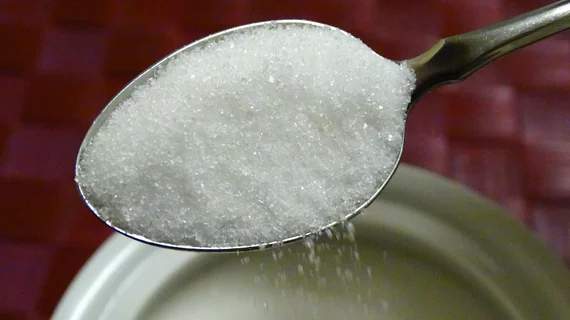WHO warns against use of artificial sweeteners, highlighting CVD and diabetes risks
The World Health Organization (WHO) has published a new guideline recommending against the use of artificial sweeteners such as aspartame and sucralose to lose weight or reduce the risk of noncommunicable diseases.
The use of non-sugar sweeteners (NSS) is not associated with any long-term benefits related to body fat, the organization wrote, and NSS use can actually lead to a heightened risk of cardiovascular disease (CVD) and type 2 diabetes.
The guideline’s authors noted that “interest in the potential utility of NSS in reducing sugars intake has increased” in recent years. The group used a 210-page systematic review from 2022, also developed by WHO, to reach its conclusions.
“Replacing free sugars with NSS does not help with weight control in the long term. People need to consider other ways to reduce free sugars intake, such as consuming food with naturally occurring sugars, like fruit, or unsweetened food and beverages,” Francesco Branca, WHO’s director for nutrition and food safety, said in a statement. “NSS are not essential dietary factors and have no nutritional value. People should reduce the sweetness of the diet altogether, starting early in life, to improve their health.”
The WHO guideline includes evidence from prospective observational studies with up to 10 years of follow-up data, noting that “higher intakes of NSS were associated with increased risk of type 2 diabetes, CVD and CVD mortality.” NSS use was not associated with a higher risk of coronary heart disease.
One exception to these WHO recommendations is individuals who already have diabetes. Also, the WHO statement clarified, the recommendation does not apply to low-calorie sugars and sugar alcohols, “which are sugars or sugar derivatives containing calories and are therefore not considered NSS.”
The full WHO guideline, nearly 75 pages in length, is available here.
Prior Cardiovascular Business coverage related to the potential effects of artificial sweeteners is available here and here.

